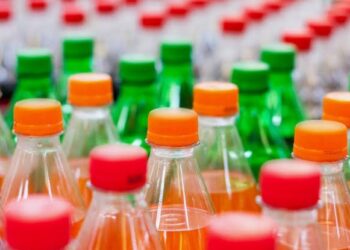1. The Issue
- Nigeria introduced a N10 per litre Sugar-Sweetened Beverage (SSB) tax in 2022, sold to the public as a fiscal-health intervention: raise revenue while reducing Non-Communicable Diseases (NCDs).
- Three years later, evidence shows the tax is failing on both counts.
2. Key Facts
- Revenue without Health Impact
- Estimated revenue: N27bn–N200bn annually; up to N729bn if raised to N130/litre.
- Zero evidence of funds ring-fenced for healthcare, despite NCD burden.
- Federal health allocations rose from N1.179tn (2023) to N2.48tn (2025), but not proportionate to SSB tax claims.
Industrial Toll
- Sugar consumption fell 16% in 2023.
- Domestic sugar production collapsed 35% in 2023 (NSDC).
- Beverage companies face thinner margins, reduced turnover, and job cuts.
- Thousands of livelihoods across farming, refining, transport, and retail are being taxed out of existence.
Health Contradictions
- Nigeria’s per capita sugary drink intake is among the lowest globally.
- NCDs peak in 40+ adults, while peak SSB consumption is in youths 15–20.
- Other contributors (oil, salt, refined carbs, sedentary lifestyles, genetics) are ignored.
- Tax targets the wrong demographic and fails to address the main drivers of NCDs.
Policy Incoherence
- Billions invested in sugar production under the Nigerian Sugar Master Plan (NSMP).
- Simultaneous punitive taxes shrink demand for sugar.
- Investors see “fiscal schizophrenia”—promoting supply while killing demand.
3. Why This Matters
- Public Health: A blunt tax that misdiagnoses NCD drivers delivers negligible health benefits.
- Industry Confidence: Manufacturing, jobs, and investment are being eroded.
- Equity: Burdens manufacturers and consumers, while upstream sugar producers still enjoy incentives.
- Credibility: The Government promised a “health tax” but delivered a revenue grab, undermining public trust.
4. Recommendations
Adopt a Tiered, Sugar-Content-Based Tax
- Encourage reformulation rather than blanket punishment.
Earmark Revenues for Health
- Direct funds to NCD prevention, school nutrition, and fitness campaigns.
Pursue Holistic Interventions
- Address oil, salt, and carb-heavy diets; promote active lifestyles.
Align Industrial and Health Policy
- Support low-sugar/non-sugar beverage innovation using local inputs.
Ensure Transparency & Evaluation
- Publish annual reports on SSB tax revenues and their impact on health.
5. Conclusion
- Nigeria’s SSB tax is not delivering on its promises. It is hurting jobs, eroding industry, and failing public health. A smarter, evidence-based policy can achieve balance—encouraging healthier choices without destroying livelihoods.
Soundbite from Dr. Iboma:
“Let us stop scapegoating SSBs as the villain of NCDs. Nigeria needs holistic health interventions, policy coherence, and a taxation framework that protects both lives and livelihoods.”


















